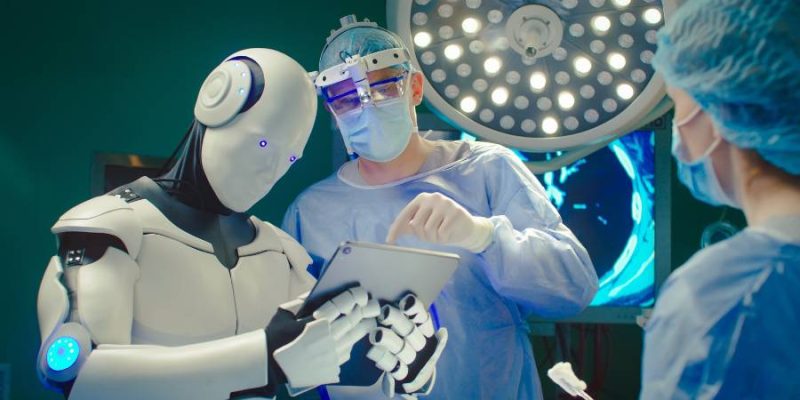
Would You Let a Robot Perform Your Surgery?
Imagine this: You’re lying on an operating table, the beeping of machines is the only sound in the room, and instead of a human surgeon with years of experience, a robot, precise and steady, is holding the scalpel. The idea might make your heart race a little faster, but it’s not science fiction anymore—it’s our reality. The question is, would you trust a robot with your life?
The Rise of Robotic Surgery: Precision at its Peak
Robotic surgery isn’t just a futuristic fantasy; it’s here, and it’s revolutionizing the medical field. Since the early 2000s, when the da Vinci Surgical System was first approved by the FDA, robotic-assisted surgery has been on the rise. This system allows surgeons to control robotic arms equipped with surgical instruments, providing unparalleled precision, dexterity, and control.
But what makes robotic surgery so appealing? For one, it allows for minimally invasive procedures. The robot’s tiny instruments can maneuver through small incisions, reducing trauma to the body. This means less pain, quicker recovery times, and shorter hospital stays for patients. Moreover, the robotic systems are designed to filter out the tremors of human hands, offering accuracy down to a fraction of a millimeter. That’s right—no more “Oops, my hand slipped!”
Numbers Don’t Lie: The Accuracy and Success Rates
Let’s talk numbers. Studies have shown that robotic surgery can significantly reduce complications compared to traditional open surgery. For example, in prostate cancer surgeries, the use of robotic systems has resulted in fewer complications, such as less blood loss and a reduced risk of infection. In fact, some studies suggest that robotic surgery may even improve long-term outcomes, such as cancer control and preservation of vital functions.
The success rates are impressive too. Robotic-assisted surgeries boast high success rates, often matching or exceeding those of traditional methods. For instance, in gynecologic surgeries, robotic systems have been shown to reduce the risk of complications by up to 52%. These statistics are hard to ignore and speak volumes about the potential benefits of trusting a robot in the operating room.
The Concerns: Are We Ready to Trust Machines with Our Lives?
But before you sign up for a robot to perform your next surgery, it’s important to consider the concerns. The thought of a machine handling something as delicate as surgery can be unsettling. After all, what if something goes wrong? What if the robot malfunctions mid-surgery? Who’s accountable if the outcome isn’t as expected?
One major concern is the cost. Robotic surgeries are expensive, and not all insurance plans cover them. The high price tag can make this cutting-edge technology inaccessible to many, raising questions about equity in healthcare.
Additionally, there’s the issue of training. While robots can perform with incredible precision, they’re only as good as the surgeons who control them. It takes significant training and experience for a surgeon to master the use of these robotic systems. The steep learning curve means that outcomes can vary depending on the surgeon’s expertise.
Lastly, the reliance on technology raises ethical questions. Are we comfortable with the idea of machines playing such a critical role in our health and well-being? Could this lead to a future where human touch and intuition in medicine are replaced by cold, calculating algorithms?
So, Would You?
The prospect of robotic surgery is both thrilling and terrifying. On one hand, the accuracy and success rates are promising, offering the potential for safer, less invasive procedures. On the other hand, the concerns around cost, training, and ethics cannot be ignored.
The decision to let a robot perform your surgery ultimately boils down to trust—trust in the technology, in the surgeon operating the system, and in the healthcare system as a whole. Would you trust a machine with your life, or do you still find comfort in the hands of a human surgeon?
As robotic surgery continues to advance, this question will become increasingly relevant. Whether you’re excited about the future of medicine or cautious about the risks, one thing is clear: the robots are here, and they’re changing the face of surgery forever.
Would you take the leap of faith? The next time you or a loved one needs surgery, you might just find yourself asking, “Is it time to let the robot take the reins?”
Let us know what you think—are you ready to embrace this technological revolution, or does the idea of a robot with a scalpel send shivers down your spine? Share your thoughts and join the conversation!





















